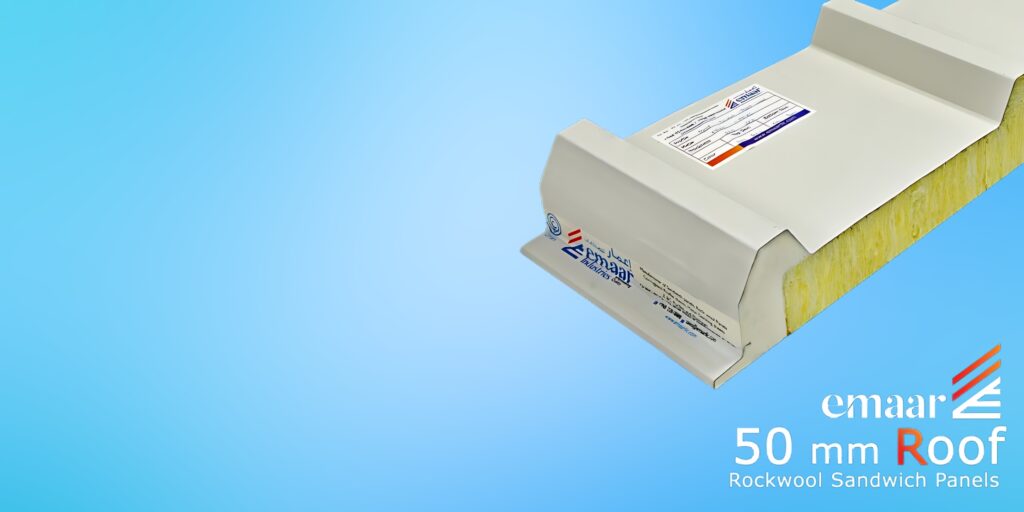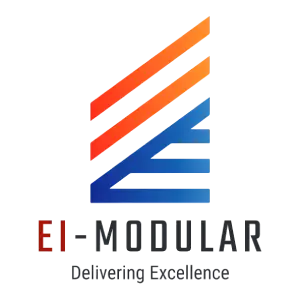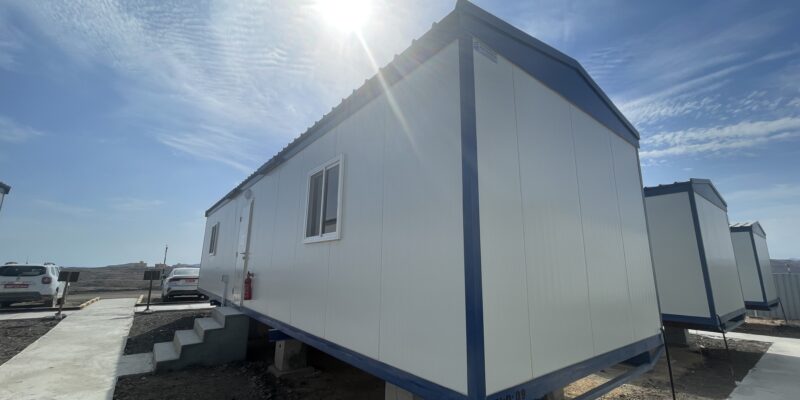Prefabricated cabins have revolutionized the construction industry, offering efficiency, durability, and versatility. Among the key components of these cabins are the sandwich panels, which provide insulation and structural support. In EI Modular, we are using our in-house manufactured sandwich panels two common types of insulation; PIR (Polyisocyanurate) and Rockwool. Let’s delve into the characteristics and benefits of each.
PIR Insulation:

Order Sandwich Panel from here
PIR (Polyisocyanurate) insulation is a type of rigid foam insulation commonly used in construction, particularly in sandwich panel systems for buildings. It is composed of a closed-cell foam structure formed by the reaction between isocyanate and polyol. PIR insulation offers excellent thermal performance, high strength-to-weight ratio, and good fire resistance properties. It is lightweight, durable, and resistant to moisture, making it suitable for various applications where insulation and energy efficiency are crucial, such as roofing, wall cladding, and prefabricated cabin construction. Below we mention some advantages of using PIR insulation in manufacturing prefabricated cabins:
- Efficiency: PIR insulation offers excellent thermal performance, effectively regulating interior temperature and reducing energy consumption for heating or cooling.
- Lightweight: PIR panels are lightweight yet strong, making them easy to transport, handle, and install.
- Fire Resistance: PIR insulation provides good fire resistance, enhancing the safety of the structure. Our prefabricated cabins, constructed with PIR insulated sandwich panels, meet the approved 60-minute fire resistance standard set by the Ministry of Civil Defense, ROP, and OPAL.
- Moisture Resistance: PIR panels are resistant to moisture and water absorption, preventing issues such as mold or rot.
The prefabricated cabins from EI Modular are certified for fire resistance by the Ministry of Defense and ROP. They are also approved by PDO, Shell, BP, OXY, OQ, and other major players in the Oil & Gas industry in Oman.
Rockwool Insulation:

Order Sandwich Panel from here
Rockwool insulation, also known as mineral wool insulation, is made from volcanic rock, typically basalt or diabase, which is melted down and spun into fibers. These fibers are then compressed into insulating products such as batts, rolls, or boards. Rockwool insulation provides excellent thermal insulation properties, as well as soundproofing and fire resistance. It is commonly used in buildings and industrial applications to improve energy efficiency and enhance fire safety. We provided you advantages of using EI Modular prefabricated cabins insulated by Rockwool panels:
- Fire Resistance: Rockwool insulation is inherently fire-resistant, offering high levels of fire protection to the structure. While the standard fire resistance for prefabricated cabins in Oman is typically 60 minutes, our EI Modular Rockwool MFABs offer an extended fire resistance of 180 minutes, providing our customers with peace of mind.
- Acoustic Insulation: Rockwool panels effectively dampen sound transmission, providing acoustic comfort within the cabin.
- Thermal Performance: While slightly less efficient than PIR, Rockwool still offers good thermal insulation properties, helping to maintain comfortable indoor temperatures.
- Durability: Rockwool panels are robust and durable, withstanding harsh environmental conditions and offering long-term performance.
- Eco-Friendly Material: Rockwool, made from natural volcanic rock, is a sustainable and environmentally friendly insulation material. Its production process involves recycling and repurposing materials, contributing to reduced waste and environmental impact. Additionally, Rockwool insulation is non-combustible and does not release harmful gases or chemicals when exposed to fire, making it a safer and more environmentally conscious choice.
EI Modular’s prefabricated cabins, insulated with Rockwool, offer more than just a 180-minute fire resistance. They are also in line with Oman Vision 2040, promoting the use of green and sustainable energies.
By considering the above given data, when it comes to thermal performance, PIR insulation typically surpasses Rockwool, ensuring enhanced insulation and energy efficiency. While both materials boast excellent fire resistance, Rockwool tends to be favored for applications demanding elevated safety standards. In terms of acoustic insulation, Rockwool takes the lead, making it the preferred option for cabins prioritizing sound attenuation. On the other hand, PIR panels exhibit superior moisture resistance, rendering them suitable for environments characterized by high humidity levels.
Conclusion:
In summary, both PIR and Rockwool insulation offer unique advantages for prefabricated cabins. While PIR excels in thermal performance and moisture resistance, Rockwool shines in fire resistance and acoustic insulation. The choice between the two depends on factors such as project requirements, environmental conditions, and regulatory standards. By understanding the characteristics of each insulation type, builders can make informed decisions to ensure optimal performance and comfort in prefabricated cabins.
At EI Modular, we offer both insulation options to empower our customers in selecting the most suitable solution for their projects. Unsure about which material to choose? We provide complimentary consultations tailored to your project and specific needs to guide you towards the best decision.


